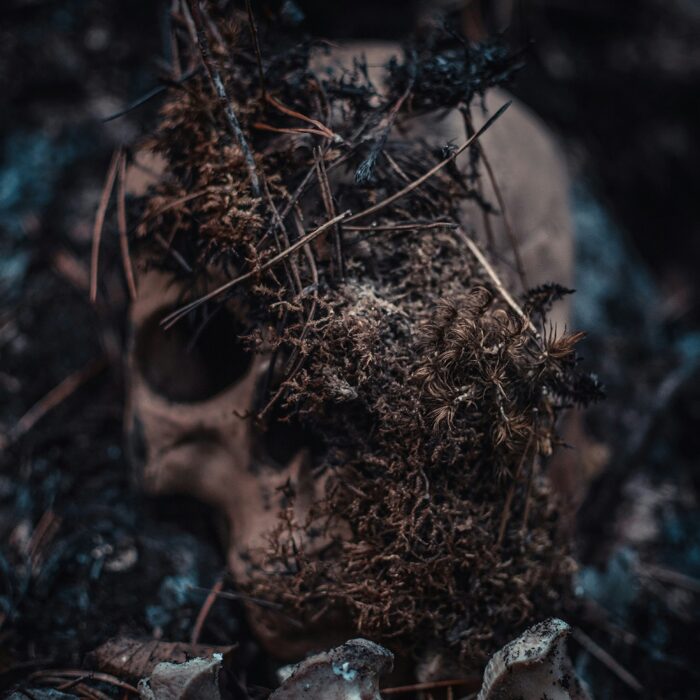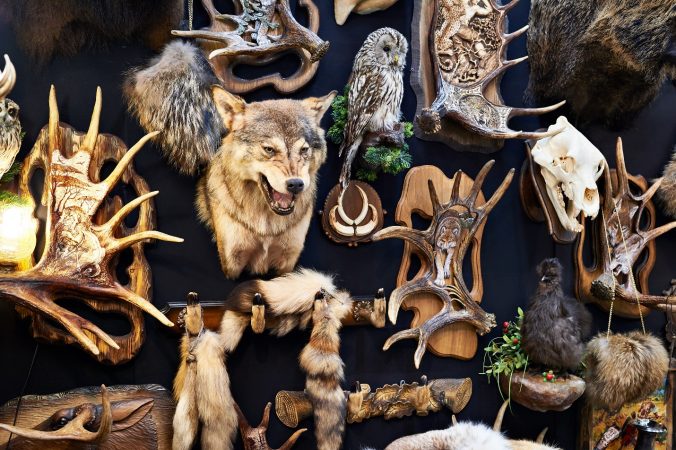You have no items in your cart. Want to get some nice things?
Go shopping
The Border Control officer rouses himself from boredom as he flicks his eyes from my face, to my passport, back to my face.
“Su Lin Leong,” he enunciates, lips peeling back from his teeth on the second syllable.
“Chinese name?” he guesses. I nod.
“You don’t look Chinese,” he says, squinting at me suspiciously, angling his head from this way to that, as if I am trying to trick him in some way.
*
I have grown used to this response to my face–name mismatch, the result of a Chinese father and an Irish mother. I grew up in 1980s Ireland; multiculturalism happened somewhere else. Learning to construct my own ethnic identity against the backdrop of a racially homogenous Ireland was like being given a box of jigsaw pieces, except the pieces were from two different sets, and not all of them fitted together properly. I was surrounded by people who never had to think about ethnic identity – their jigsaw puzzles had already been built and handed to them, crafted by generations.
*
I was reminded of my own difference at the start of every school day, which began with An rolla. The dusty ledger was opened, and names were read out in Gaelic translation: Caoimhe de Búrca, Eimear Ní Bhuchalla, Aoife Ní Cheallaigh, Maire Nic an tSionnaigh. The teacher intoned the throat-catching consonants, up to Clíona Uí Dhálaigh, and finally – almost apologetically – Su Lin Leong, the staccato syllables a sharp full stop.
*
A name comes with expectations, a lesson I learned at my first day at school.
“Aww, does she speak Japanese-y?” Sinéad squealed, bending down to look into my face. She was one of the older girls from sixth class, in charge of escorting me to the junior infants’ room. I recognised her from my neighbourhood.
“Ah go on, say something Japanese-y!” she said as she poked me gently in the stomach, as if I were some kind of life-sized Baby Talk doll. I stared up at her blankly with no idea of what she was talking about. I had never heard of Japan and it didn’t occur to me to respond to a request as odd as this one. I said nothing while Sinéad twirled her blonde ponytail around her fingers and looked at me expectantly. I didn’t know it then, but there will be a lifetime of Sinéads that I will disappoint in some way, without even trying.
*
Back at Border Control, my new friend studies my passport photo, lips compressed into a tight line.
“Well, maybe about the eyes,” he concedes eventually.
*
“Now, pinch your nose like this,” Chinese uncle pinched the tip of my nose as if stemming a bleed, “every night to make it go pointy.” Uncle’s glasses slipped down his own squat nose as he peered at me over the lenses. Chinese auntie clucked him away.
“At least she’s nice and plump lah, plenty of meat,” she said, massaging my forearm with gold-ringed hands. My six-year-old self was doubly confused now. Was auntie calling me fat? I searched Chinese uncle’s face for a clue to explain his strange instruction.
“To make it less Chinese-looking,” my mother later explained as I rubbed my smarting nose. “But don’t mind your uncle, he’s talking rubbish.”
*
“You speak Chinese?” Border Control asks, throwing down this question like a challenge.
“No, I’m afraid not,” I say automatically (I have been apologising for this deficit all my life).
‘Huh,’ he grunts. As he squints at my visa, he says something to his colleague over his shoulder in his native tongue, the words teeming and flowing and winding around each other.
*
“But you can understand Chinese, right?” my friend asked, in fourth class in primary school, her nose crinkled in confusion after my father dropped us off at dance class. From the back seat, she had listened to my father’s clipped rhythms and intonation and heard foreign. She had written her own conclusion to the puzzle in her mind, and assumed I was responding in English to his Chinese. My father speaks perfect English, though he favours silence over speech as a general rule. He has never lost his accent, however. He also has trouble with certain sounds, in particular the sps sound. He cannot say crisps for example. He has come to quite a clever workaround for this one, and calls all crisps Tayto. Luckily, in pre-Celtic Tiger Ireland, the brand ubiquity of Tayto means that it is practically the Irish word for crisps, and this lack of product diversity makes his life a little easier.
*
It was in the language of others that I learned to see myself as the world saw me. “So you’re half-caste then?” asked another kid at my friend’s ninth birthday party. I felt wholly myself and not half of anything, so I didn’t know what to say to her. She said it without malice, more in curiosity, searching for a label for me in her mind. Even though political correctness hadn’t been invented yet, I knew this was rude.
“No, tell them you’re Eurasian,” said my mother later when I relayed the day’s events. This was no use to me at all. I had never heard of that word, and I was pretty sure no one else I knew had either. I may as well have introduced myself as a Smurf for all the good that would do. I decided to keep the race questions to myself from then on.
*
It must have been just a year or two later, when I went to the garage with my mother to pick up my father’s car. I was at that in between age where I was considered too young to be left home alone, but old enough that errands like these were a bore. I was loitering at the garage entrance, wishing I was at home watching Zig and Zag, while my mother rummaged for her chequebook.
“Oh, it’s the car belonging to the little foreign fella,” the mechanic called across the forecourt, gesturing at his colleague to get our newly repaired car. I was embarrassed; I knew there was something wrong with that description of my father, though I didn’t understand what. It felt like when I went red overhearing my uncle tell a dirty joke, not because I understood it but because I didn’t. My mother said nothing but snapped her handbag shut aggressively.
“Cheek of him!” she said when we were alone in the car. In the back seat, I ran my hand over the upholstery, first with the pile of the fabric, then against, my hand turning the shade from light to dark to light again. If Eurasian was meant to protect me from half-caste, what protected my Dad from foreign fella?
*
Eventually, Border Control and his pal wind up their conversation. I can hear the impatience of the queue rising in tuts and sighs behind me.
“Purpose of visit and where are you staying, please?”
*
I was a teenager when we took a family trip to the East to visit the Chinese side of the family. I was finally considered old enough to be taken out alone by my cousin. She shared my father’s affection for American fast food, and she took me to the mall for KFC. At twenty-three, Sarah (the irony of her having an English name was lost on me until much later) seemed impossibly glamourous. When she drove, she wore a white sleeve that fitted snugly over her arm, elastic biting the flesh of her upper arm before flaring out to cover her hand. It was the first thing she put on when she got in the car. I was transfixed by it but tried not to appear rude.
“To stop my arm from going brown in the sun,” she explained in answer to my sneaky glances. I didn’t understand – going brown was the main goal of summer holidays in Ireland. Tan lines were proudly compared between me and my friends; watches were kept firmly in place all summer for this very purpose. A tanning baseline. Compare and contrast, as our essay instructions told us. In the back of the car, I slid down in the seat a little, newly conscious of my swimsuit-striped shoulders.
*
Back at school that September, I was idly picking at my fading tan, mostly peeling now, when a prefect came to get me from religion class. I was wanted in the Assembly Hall. Just me. Suspicious but delighted at any distraction, I followed her down the main stairs. Aiko, a Japanese student from the year above me was standing waiting, looking equally nonplussed.
“Stand there, girls,” said Mrs O’Reilly, as she arranged us in front of a cardboard cut-out of a globe, Race Awareness Week printed on a banner on top.
“Right, now smile!” she said from behind the camera. Click.
“OK, back to class girls, no dilly-dallying!”
It was all over in minutes, no explanation, no discussion, no context. I was back in front of the New Testament before my brain had caught up. I forgot about it until the end of the year, when I came across the picture in the school yearbook, underneath an article about increasing diversity in the school.
*
Border Control grants me passage with the definite thud of a passport stamp.
“Have a good trip,” he says mechanically, curiosity spent. He waves me on, still disappointed with something but I don’t know what. I join the press of nationalities heaving towards planes and destinies.
*
As an adult, I moved to London and found relief in blending in with its sweaty soup of ethnicities. But as multicultural as it is, I learned that this comes with its own set of rules. There is a new language now: Black, Asian and Minority Ethnic or BAME for short. Any form I complete asks me to tick a box if I come from a BAME background. Do I? I don’t know. I leave the box unticked.
Along with some friends, I go to see a film about race, ethnicity, and identity. In the pub afterwards, I proffer an opinion and link it in some way with my own experience. My White British friend is openly dismissive. “You’re White, come on,” he scoffs, as if I’m trying to claim membership of some exclusive club on a technicality. As if the fact that we share the same skin colour means that my experience of navigating the world of identity must be just like his. Once again, there is no space for me. Anger burns through my cheeks, anger at a lifetime’s worth of other people trying to tell me what I am: half-caste, White, a tick on a diversity box, too Chinese, not Chinese enough. Now, I’m not different enough. The irony of it thickens my tongue and renders it useless. I revel in this unexpected twist as I leave, pushing my way through the crowded bar, making a space for myself in the flow of people.
About Sue Hann
Sue Hann's work has been published in online and print journals such as Popshot quarterly, and included in the National Flash Fiction Day anthology.




